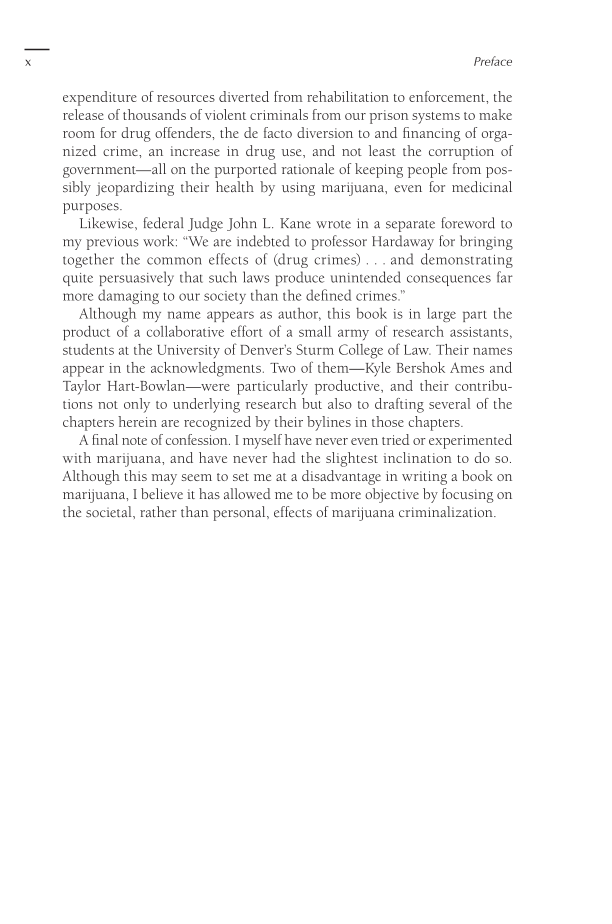x Preface
expenditure of resources diverted from rehabilitation to enforcement, the
release of thousands of violent criminals from our prison systems to make
room for drug offenders, the de facto diversion to and financing of orga
nized crime, an increase in drug use, and not least the corruption of
government—all on the purported rationale of keeping people from pos-
sibly jeopardizing their health by using marijuana, even for medicinal
purposes.
Likewise, federal Judge John L. Kane wrote in a separate foreword to
my previous work: “We are indebted to professor Hardaway for bringing
together the common effects of (drug crimes) . . . and demonstrating
quite persuasively that such laws produce unintended consequences far
more damaging to our society than the defined crimes.”
Although my name appears as author, this book is in large part the
product of a collaborative effort of a small army of research assistants,
students at the University of Denver’s Sturm College of Law. Their names
appear in the acknowledgments. Two of them—Kyle Bershok Ames and
Taylor Hart-Bowlan—were particularly productive, and their contribu-
tions not only to underlying research but also to drafting several of the
chapters herein are recognized by their bylines in those chapters.
A final note of confession. I myself have never even tried or experimented
with marijuana, and have never had the slightest inclination to do so.
Although this may seem to set me at a disadvantage in writing a book on
marijuana, I believe it has allowed me to be more objective by focusing on
the societal, rather than personal, effects of marijuana criminalization.























































































































































































































































































































